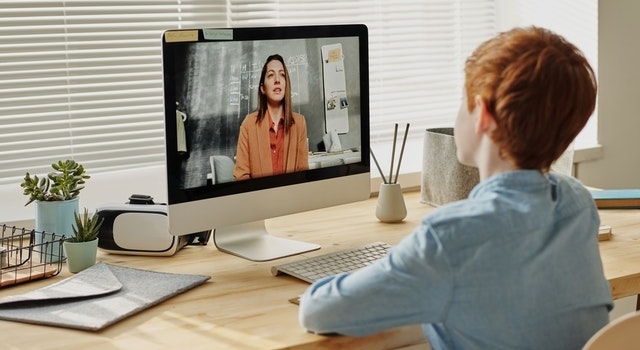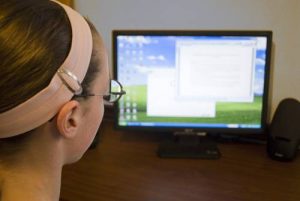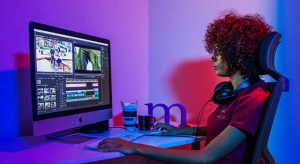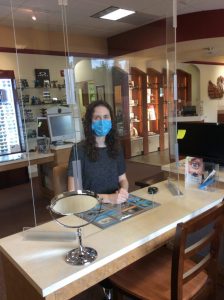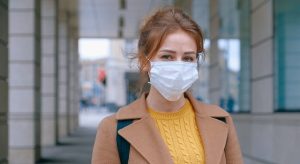COVID has impacted our world in many ways, but has it also caused an increase in myopia in children?
For many children across the globe, COVID-19 restrictions have led to less time spent outdoors and more time spent on digital screens.
Excessive screen-time has led to a concerning rise in myopia progression.
Since this worldwide pandemic, eye doctors have been seeing an increase in myopia progression among children.
The question is, does a direct correlation exist between the two?
Has COVID affected children’s vision?
The answer is yes!
According to a study published in JAMA Ophthalmology (2021), children have been experiencing an increased rate of myopia progression since the beginning of the COVID pandemic.
To determine the rate of myopia progression, researchers examined school vision screenings from the years 2015 to 2020 conducted on more than 120,000 children from 10 elementary schools.
According to the study, there were significantly higher rates of myopia progression in 2020 than in previous years, especially among children ages 6 to 8 years— possibly due to their earlier stage of visual development.
SEE RELATED: What is Myopia Management?
If you’re concerned about your child’s myopia, make an appointment with an eye doctor as soon as possible.
Can outdoor play reduce the risk of myopia or prevent it from worsening?
According to research, outdoor play can actually reduce a child’s risk of developing myopia and also prevent myopia from worsening.
A 20-year study on myopia was published in the Collaborative Longitudinal Evaluation of Ethnicity and Refractive Error Study (1999).
This study found that children who spent about two hours a day outdoors, showed a significant reduction in their risk of myopia development.
A child with two myopic parents has a 60 percent chance of developing myopia, but spending around 14 hours per week outdoors reduces their risk to around 20 percent.
A more recent study published in the American Academy of Ophthalmology (2018) reported a significant correlation between prolonged near-work tasks, such as reading, writing and screen time, and an increase in myopia progression.
These studies give us a clearer picture of why myopia progression in children has been on the rise since the start of the COVID pandemic.
What can parents do?
It is important for parents to limit screen time and encourage outdoor play as much as possible. This is not only healthy for your child’s eyes, but for your eyes as well.
Nowadays, we are all guilty of spending too much time in front of screens or other digital devices, and giving the eye muscles a chance to relax is beneficial to your eye health both now and in the future.
What is myopia management?
Myopia management is a customized treatment program aimed at slowing myopia progression to reduce the risk of sight-threatening eye diseases in the future.
Myopia management has shown to decrease myopia progression by up to 78%.
Myopia management involves the use of eyeglasses, contact lenses, or eye drops— all scientifically proven to aid in the control of myopia progression.
LEARN MORE: Guide to Myopia Management
If you’re concerned about your child’s myopia, make an appointment with an eye doctor as soon as possible, as delays in seeking professional advice can make myopia management more challenging in the future.
For many children across the globe, COVID-19 restrictions have led to less outdoor play and more time spent on digital screens.
According to research, this has led to a concerning increase in myopia progression. Fortunately, there are ways to slow and sometimes even stop myopia from worsening.

